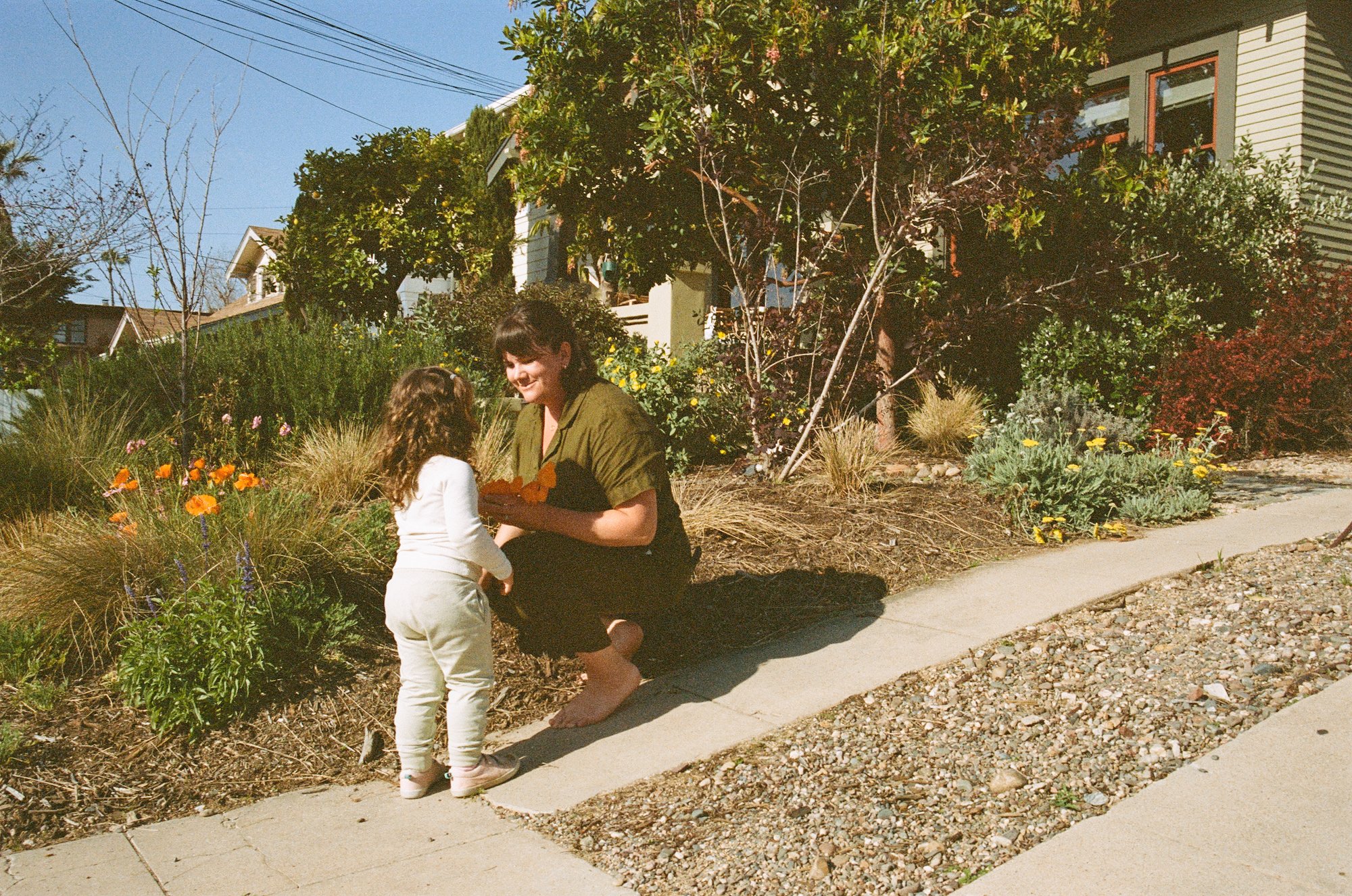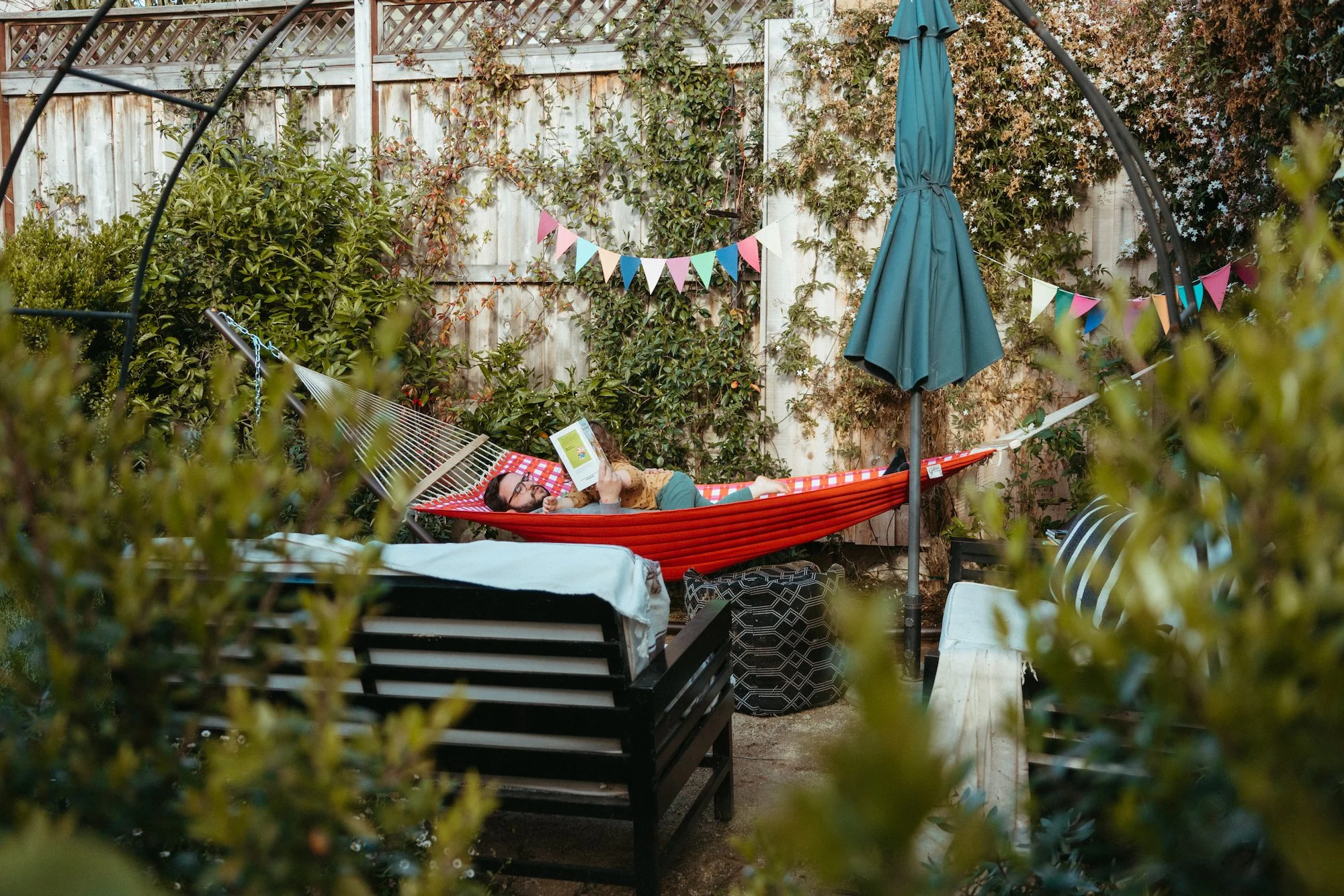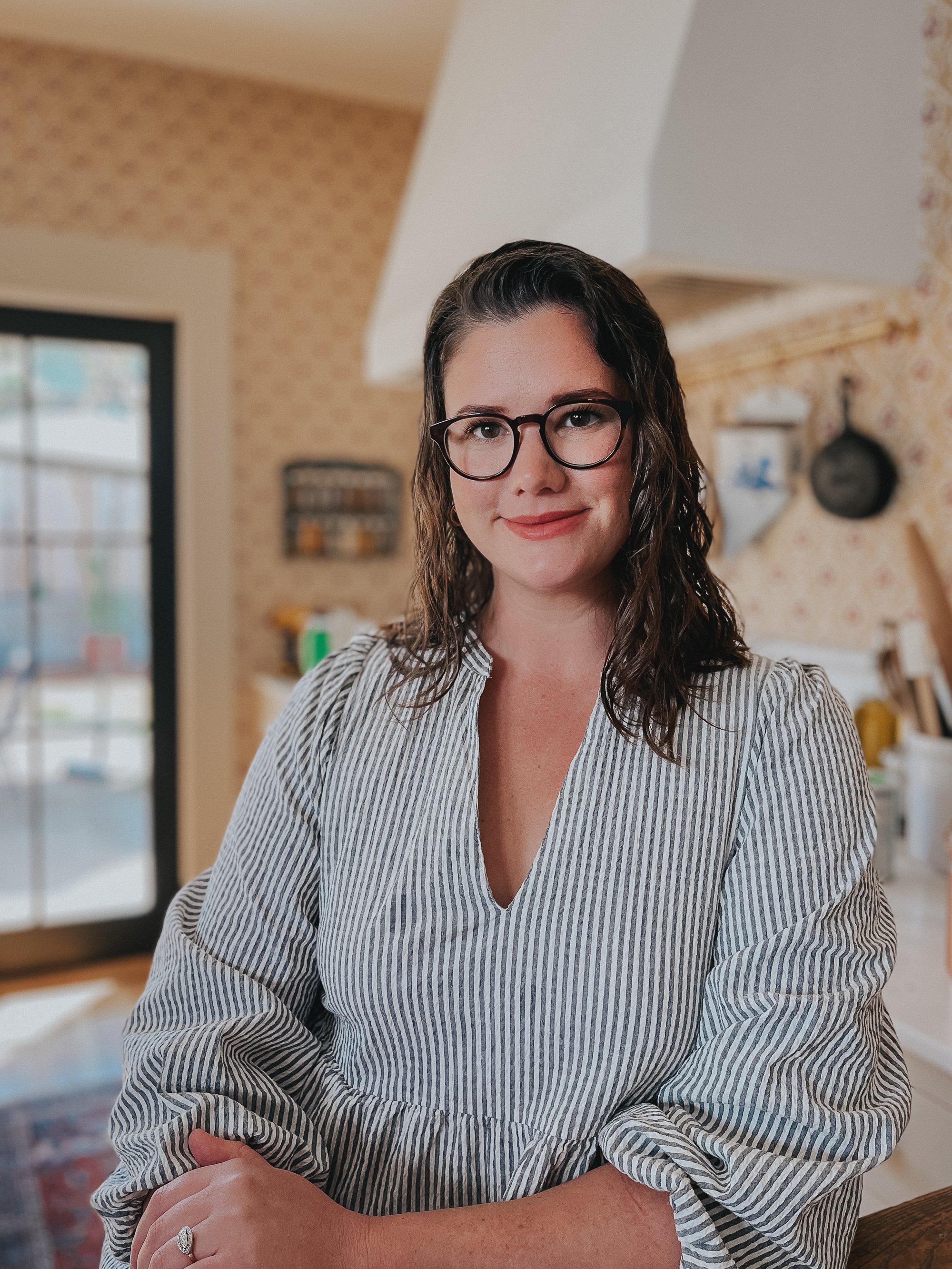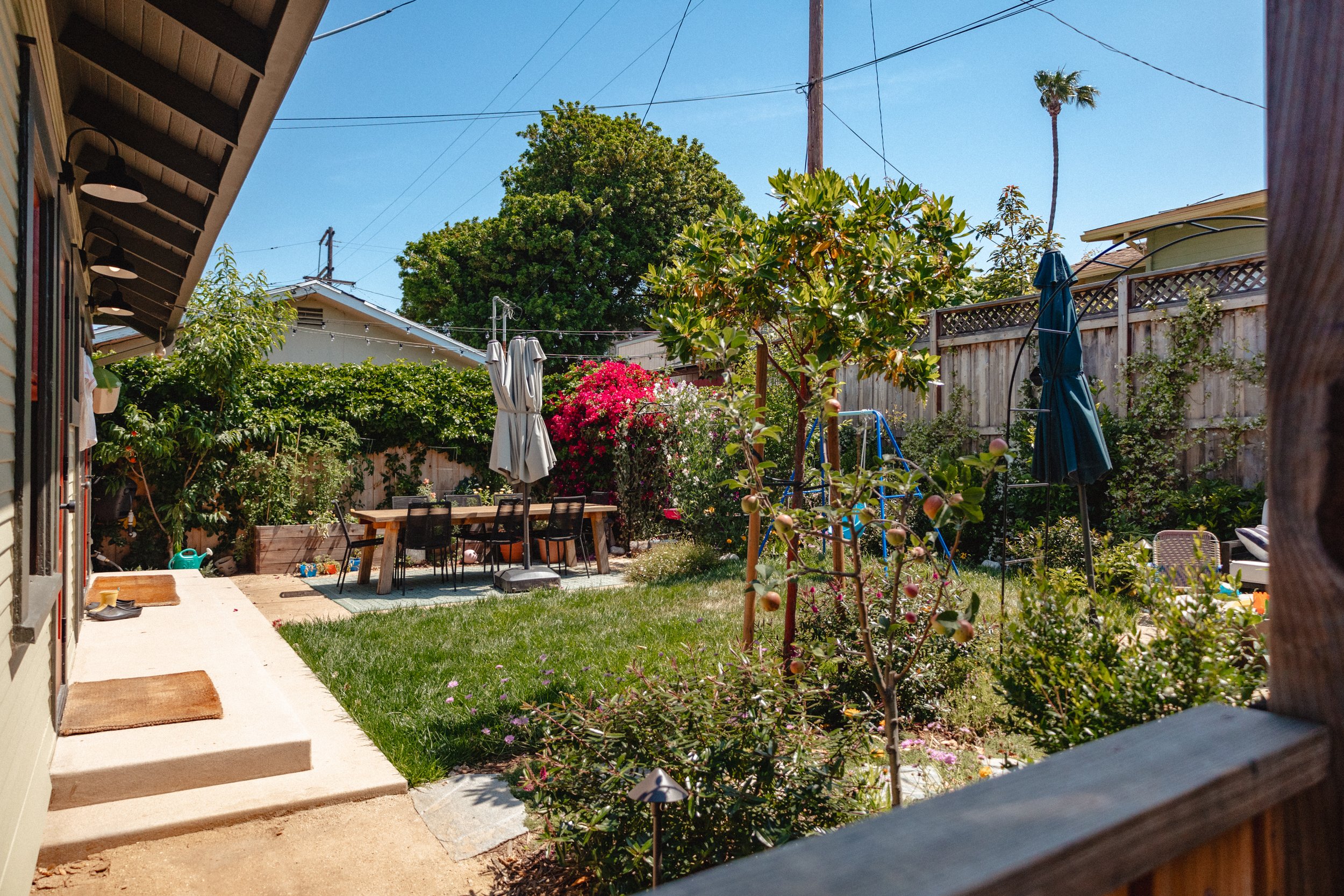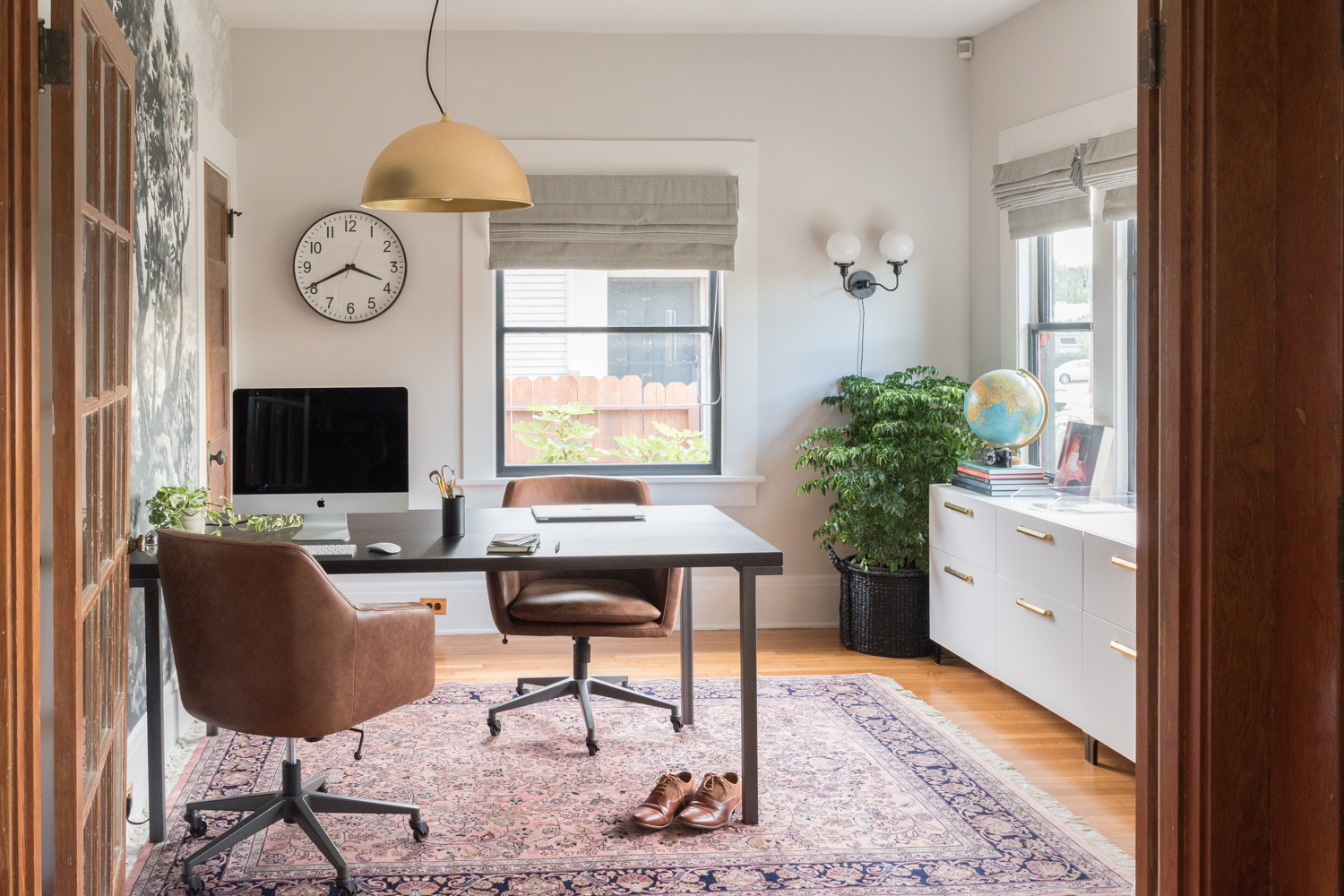Discussing Clean Electricity and Energy Justice with Olivia Nedd of Vote Solar
/We’re passionate about our environment and care deeply about providing a safe, healthy, and equitable planet for all. One of the ways that we can work towards this goal is by focusing on large-scale advancement of clean energy to reduce our dependence on fossil fuels that pollute our land, poison our communities, and overheat our planet. In this post, I’ll introduce you to a clean electricity advocate, Olivia Nedd, who is the Policy Director of the Access & Equity Program for Vote Solar who will speak to the importance of why we need to bring all races and incomes along in this energy shift. We’ll also talk about the US’s electricity sources and environmental racism, and how you can make a change for the better.
This post is in partnership with Vote Solar, a nonprofit organization working to achieve a just and equitable transition to a 100% clean-powered future that supports the needs, health, and well-being of everyone in the U.S. — with solar energy leading the way.
We made our home’s energy cleaner by adding solar panels a few years ago. It’s been a true joy knowing that when I bake with our electric oven, it’s powered by the sun rather than fossil fuels. Plus, our electric car doesn’t emit any greenhouse gasses and is powered by offset solar energy. And, what I love most of all is when I’m not charging the car, baking, or using much electricity during the day, the excess clean power my home produces is being sent back into the grid for others to benefit from! Sharing is caring! While we’ve made changes at home to impact our family and small community, our individual action isn’t enough to make systemic change to ensure everyone has clean energy access. We need to go bigger. More on that in a minute.
Clean Energy Facts and Resources
I want to give some background on the important work that Olivia does at Vote Solar, so below are a few resources about the US’s energy. For starters, this 2020 article visually demonstrates each state’s electrical power source, be it from fossil fuels (coal, natural gas, etc.) or clean energy (solar, wind, hydroelectric, etc).
Source: New York Times
Above is a view of the entire US’s energy generation over the last decade. See that bright yellow at the bottom? That’s solar, working its way towards becoming a more popular energy source! While clean energies are on the rise, our nation’s power is still dominated by fossil fuels.
President Joe Biden has a goal of a 100% carbon-free electric sector by the year 2035, meaning he aims to remove all emissions from all carbon power plants in just over a decade. Generating electricity is one of the single biggest sources of greenhouse gas emissions in the US right now - electricity use makes up 27% of the US’s greenhouse gas emissions. By focusing efforts on making our electricity green, we can reduce a big chunk of our nation’s emissions. According to this report, we could get to 90% zero-carbon electricity by 2035 all while maintaining a reliable grid with existing technologies. We just need to retire old coal plants and build out wind, solar, and storage - no need for reinventing the clean energy wheel. Oh, and this would also cut customers’ electricity bills by 10-15%! To do this, we need to expand the grid and install lots more green energy producers. Learn more of these facts in this episode of a favorite podcast. And if you want to learn even more about how we can reduce global warming, I highly recommend the book Drawdown.
These efforts are inspiring, right? Well, we need policy to drive this change because the free market alone isn’t enough. There’s a lot of work to be done at the federal, state, and local levels to drive this necessary change. One of the groups working to advance policy change is Vote Solar, a nonprofit advocacy group working at the state level using coalition building and public engagement to push policies towards just and equitable clean energy.
While we need big state-level change, Vote Solar needs enthusiastic folks to advocate for renewable energy projects near them to change the landscape of clean energy. That’s you and me! You can sign up to support their efforts with this toolkit and by staying tuned to their initiatives in your area to get involved.
Unfortunately, BIPOC and low-income communities are disproportionately harmed by the fossil fuel industry through resource exploitation, unfair labor, and polluted environments. Energy justice is key to advancing everyone’s clean power. But solar power is leading the transition to clean energy and through this renewable resource, we can lift up ALL communities while we’re at it! One inspiring leader fighting for energy justice is Olivia Nedd, who I had the pleasure of interviewing.
About Olivia Nedd
Olivia Nedd serves as the Policy Director of the Access & Equity Program at Vote Solar. Prior to joining Vote Solar, Olivia worked with Florida Conservation Voters where she led a statewide campaign to bring electric school buses to low-income and communities of color. Olivia grew up in Beacon, New York, and now lives in Palm Beach, Florida. She holds a B.A. in English and Political Science from the University of Central Florida and her Juris Doctorate from Howard University School of Law. In her free time, Olivia enjoys acrylic pour painting and spending time with her family in Antigua and Barbuda, where she is from.
Q&A with Olivia
Why do you dedicate your career to energy equity?
I came into this work by chance, and there was nothing to indicate that I’d ever be exposed to energy equity, let alone energy beyond paying my light bill. I spent time as a community organizer in South Florida, and I learned firsthand from communities their challenges around the environment. I’d hear stories about high electricity bills and inefficient homes and wonder who is responsible for this. These questions opened the floodgates to a world hidden in plain sight.
Energy must be affordable and accessible for everyone. No household should have to make tradeoffs on paying their electric bill over food and medical needs. I had access to information, and I still didn’t know. So I can’t imagine what other families with little to no access know.
What exactly do you do within your role to advance a clean energy future for all?
I work on the Access & Equity Team and our role is to ensure that equity is baked into our state policy campaigns and regulatory dockets. We approach this work twofold, policy research and development along with partnerships. The partnership piece is grounded in working with local organizations that serve low-income and other underserved or marginalized communities.
My role is to find or help develop opportunities for energy policies and programs that are specifically designed to address the barriers faced by environmental justice communities and communities of color. This can range from doing legislative research to find out what states have done in the past to helping people brainstorm ideas around new low-income solar programs.
Please share an inspiring story that demonstrates how you and Vote Solar have improved solar equity for a community/person/group.
Oftentimes we think big complex solutions are needed to make solar more equitable and accessible to communities who have traditionally been locked out. While there is some truth to that, there are smaller, more obvious solutions that can have an even greater impact. For example, I’ve been working with the National Rural Electric Cooperative Association to help their member Cooperatives learn how to engage rural and low-income communities in solar programs.
The solution here is building trust first. For so long these communities have come last or been tricked by schemes, so the trust is nonexistent. If we want to see solar on everyone’s roof then we need to be seen as trusted community partners. Utility companies and in this case cooperatives can improve solar equity with better and more targeted outreach and engagement. Through calls and interactive workshops, people in charge of these programs can learn how to design outreach materials or host community listening sessions to learn about barriers to accessing solar for their customers.
What's the biggest takeaway you want someone to remember about energy equity and inclusion?
This work intersects with many other issue areas, because electricity touches many aspects of our lives. But for some people, energy instability is their reality. I think it's really easy to say that solar is the solution to all problems and not consider how earning a livable wage contributes to the ability to pay electric bills, or how living in a home that is not energy efficient can be harmful to a person's health. Solar and energy equity are just one piece of the 1,000 count puzzle we need to figure out.
What's a misconception about energy access? Please debunk it!
Only rich, white, suburban families can afford solar. This is completely WRONG! Solar is for everyone and arguably should be made available to those with the highest energy burdens first. The cost of solar has dramatically decreased since it came on the scene in the 70s, and many states like California and New York have programs or offer incentives for single-family homes that further reduce or eliminate the cost of solar. For families who rent subscribing to a local community solar project may be another option that can also provide bill savings for customers.
Policy change is so important for making big change! What kinds of policies have you and Vote Solar passed recently? Or, what policy work are you doing now?
Right now there is awesome work happening in New Mexico around community solar. A bill has passed both the state house and senate that would bring community solar to the state. Vote Solar’s Interior West Director and Tribal Liaison, Mayane Barudin, has been leading on this work. She developed a process where community engagement and input were central to the development and movement of this bill. Right now the legislation is sitting on the Governor’s desk waiting to be signed into law.
This opens the door for folks who don’t own their home to have access to the benefits of solar. This is really big, because they have been working on this legislation for years.
We can't all do the work you do, so what do you recommend people that aren't in your field do? What are the most effective ways we can make a difference for our communities?
I think the easiest way is to find a community organization focusing on work like this and sign up for the newsletter. I know it sounds like shameless self-promotion but many groups include in those e-newsletters opportunities for you to engage. Those opportunities can range from giving public comment to joining active campaigns to shut old power plants.
Solar is really popular where I live in sunny San Diego. What do you have to say to folks living in less sunny regions? How can they get involved in energy access and advocacy?
When COVID-19 hit there was a lot of worry around the economic crisis that would follow. Immediately Vote Solar along with partners called on states to stop utility shut-offs and put protections in place for vulnerable populations in the midst of the pandemic. With record job loss and things shutting down households were strapped for cash. We joined partners to take action to pressure state governments to stop utilities from disconnecting the electricity of low-income households during the pandemic because they could not pay.
This is a great way for folks to get involved in energy access and much of this work is still going on. Many states will resume shut-offs and we need to make sure this isn’t premature and that plans are in place to address electric bill debt many will face. You can search for your state's shut-offs campaign and join the fight. Ask your state representatives to keep the lights on and actually address the problem of high energy burden. I think right now this is where strong advocacy is needed.
Do you have any favorite books, movies, podcasts, or folks on social media you recommend to keep people inspired about clean energy?
I’d recommend “The Coolest Show” this podcast that talks about the root causes of climate change while addressing decades of systematic racism. The podcast is really about centering the voices of black and brown activists on the frontlines of these climate issues. The podcast is hosted by Rev. Lennox Yearwood Jr. who is also the President & Founder of Hip Hop Caucus, a minister, community activist, and U.S. Air Force veteran. Really great podcast!
What else do you want to share to get people excited about advocating for clean energy?
Something that is exciting is this renewed sense of community and acknowledgment that clean energy resources have not been made available to everyone. States are looking at targeting resources specifically to environmental justice communities. Investments in these communities can really help to address energy insecurity. I’d tell people to get excited because we are going to see a flurry of movement around bringing clean energy resources to underserved communities. But the real work is to make sure that everyone is advocating for more than the bare minimum.
Want to leave us with any sobering or motivating statistics, facts, or anecdotes about our energy future?
We are seeing many states establish goals to reach 100% clean energy goals by a certain date in the future. I think we need to come to terms with the fact that there is no way we can reach those goals if everyone is not included. So we need to do the necessary groundwork now to not only meet those goals but ensure that everyone regardless of race and income is brought along.
Really big thanks to Olivia for taking the time to share her expertise! It’s truly inspiring to see her commitment to energy justice day in and day out. I want to support her however I can and I hope you do too! You can sign up to support Vote Solar’s efforts with this toolkit and by subscribing to their emails to be up-to-date on action you can take in your local community.









